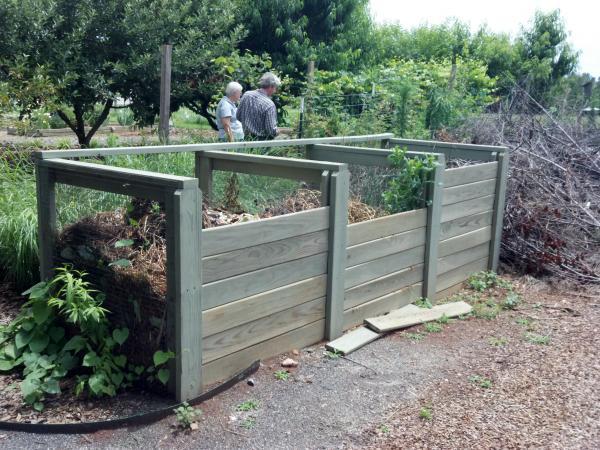Fundamentals of Composting
go.ncsu.edu/readext?569427
en Español / em Português
El inglés es el idioma de control de esta página. En la medida en que haya algún conflicto entre la traducción al inglés y la traducción, el inglés prevalece.
Al hacer clic en el enlace de traducción se activa un servicio de traducción gratuito para convertir la página al español. Al igual que con cualquier traducción por Internet, la conversión no es sensible al contexto y puede que no traduzca el texto en su significado original. NC State Extension no garantiza la exactitud del texto traducido. Por favor, tenga en cuenta que algunas aplicaciones y/o servicios pueden no funcionar como se espera cuando se traducen.
Português
Inglês é o idioma de controle desta página. Na medida que haja algum conflito entre o texto original em Inglês e a tradução, o Inglês prevalece.
Ao clicar no link de tradução, um serviço gratuito de tradução será ativado para converter a página para o Português. Como em qualquer tradução pela internet, a conversão não é sensivel ao contexto e pode não ocorrer a tradução para o significado orginal. O serviço de Extensão da Carolina do Norte (NC State Extension) não garante a exatidão do texto traduzido. Por favor, observe que algumas funções ou serviços podem não funcionar como esperado após a tradução.
English
English is the controlling language of this page. To the extent there is any conflict between the English text and the translation, English controls.
Clicking on the translation link activates a free translation service to convert the page to Spanish. As with any Internet translation, the conversion is not context-sensitive and may not translate the text to its original meaning. NC State Extension does not guarantee the accuracy of the translated text. Please note that some applications and/or services may not function as expected when translated.
Collapse ▲Nov. 6, 2025 9:00-11:30 a.m.
Food scraps and yard trimmings together account for more than a quarter of household waste. Instead of trucking this waste to the landfill, use composting – the controlled decomposition of organic materials into a soil-like substance – to turn it into a valuable soil amendment!
Join Matt Jones Extension Horticulture Agent – N.C. Cooperative Extension, and the NC State Extension Master Gardener (SM) volunteers of Chatham County for a workshop on the fundamentals of composting at home.
Participants will learn about the science of the decomposition process, understand the types of materials that are readily compostable, how to fine-tune the composting process by finding optimal temperature, moisture, aeration, and pile dimensions, and troubleshooting common composting problems. . We will present research-based information from NC State Extension and visit our on-site composting demonstration area.
The workshop will be held at the Chatham County Agriculture and Conference Center.
QUESTIONS? Contact N.C. Cooperative Extension, Chatham County Center by calling 919-542-8202 or email matt_jones@ncsu.edu
Learn More
Subscribe to the Chatham Gardener email list to receive announcements of upcoming Extension events and timely updates on sustainable lawn, garden, and landscape care for the central NC Piedmont.
NC State University and N.C. A&T State University commit themselves to positive action to secure equal opportunity and prohibit discrimination and harassment regardless of age, color, disability, family and marital status, genetic information, national origin, political beliefs, race, religion, sexual identity (including pregnancy), and veteran status. NC State, N.C. A&T, U.S. Department of Agriculture, and local governments cooperating. Persons with disabilities and persons with limited English proficiency may request accommodations to participate by contacting Ginger Cunningham, County Extension Director, at 919.542.8202, ginger_cunningham@ncsu.edu, or in person at the County Extension Office at least 30 days prior to the event.






